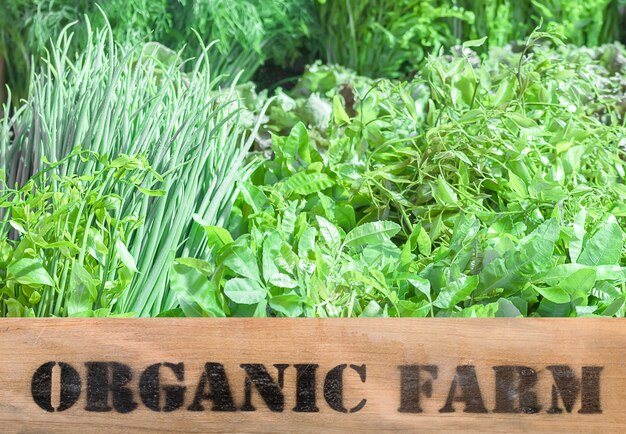As consumer demand for organic produce continues to grow, many South African farmers are looking to convert their farms to organic practices. However, obtaining organic certification can be a complex process, requiring adherence to strict standards and practices. This guide will help you understand the steps necessary to get your farm certified as organic in South Africa.
1. Understand What Organic Certification Entails
Organic farming in South Africa involves growing crops and raising animals without synthetic pesticides, herbicides, GMOs (genetically modified organisms), or synthetic fertilizers. Organic certification provides assurance to consumers that your products meet these standards. In South Africa, organic certification is typically overseen by private certifying bodies recognized by international standards like the International Federation of Organic Agriculture Movements (IFOAM).
2. Choose a Certification Body
To begin the organic certification process, you’ll need to choose a certifying body. In South Africa, there are several organizations accredited to certify organic farms, including:
- Ecocert
- Control Union
- Afrisco
- Soil Association (SA Certification)
Each certification body may have slightly different standards, but all of them must comply with the minimum organic standards set by IFOAM. Do thorough research to determine which certifier best suits your farm’s needs.
3. Prepare for the Transition Period
If your farm is currently operating with conventional farming methods, you will need to go through a transition period before your farm can be certified as organic. Typically, this period lasts three years, during which your farm must comply with organic farming principles, but you cannot label your produce as organic.
During this time, it’s essential to phase out the use of synthetic chemicals and fertilizers while adopting organic alternatives such as:
The certifying body will likely conduct an inspection of your farm during this transition period to ensure compliance with organic standards.
4. Develop an Organic Farm Management Plan
As part of the certification process, you’ll be required to submit a detailed Organic Farm Management Plan. This plan should outline how you will meet the organic standards in all areas of your farm operation, including:
- Soil management practices
- Pest and disease management
- Water conservation methods
- Animal welfare (for farms raising livestock)
Make sure that your plan includes clear documentation, as certifying bodies will review it during inspections.
5. Complete the Application and Inspection Process
Once your farm has successfully transitioned to organic practices, you can formally apply for certification. This typically involves:
- Submitting an application with detailed information about your farm and its practices
- Allowing an inspector from the certifying body to conduct an on-site visit
- Submitting samples of soil, water, or produce for testing if required
The inspector will assess your farm’s compliance with the certifying body’s organic standards, and a decision will be made based on the findings of the inspection.
6. Keep Detailed Records
Organic certification requires ongoing monitoring and record-keeping. You’ll need to maintain detailed records of your farming practices, including:
- Inputs (fertilizers, seeds, pest control methods) used on your farm
- Sales records of organic products
- Annual farm management plans
- Evidence of compliance with animal welfare standards (if applicable)
These records will be essential during annual inspections to ensure that your farm continues to meet organic standards.
7. Stay Compliant with Annual Inspections
Once your farm has been certified as organic, it doesn’t end there. Organic certification is an ongoing process that requires annual inspections to maintain your status. Each year, your farm will be visited by an inspector who will verify that your practices remain in line with organic standards.
It’s important to stay up to date with any changes in organic regulations and continue implementing best practices in organic farming. Any deviation from organic standards could lead to a suspension or revocation of your certification.
8. Access Government Support and Resources
The South African government has initiatives in place to support farmers transitioning to organic farming. Reach out to local agricultural offices to inquire about:
- Financial grants or subsidies for organic farming
- Technical training on organic practices
- Access to organic markets and distribution channels
Additionally, non-governmental organizations like the South African Organic Sector Organisation (SAOSO) offer resources and networking opportunities for organic farmers.
9. Market Your Organic Produce
Once your farm is certified, you can label and market your products as organic. South African consumers are increasingly seeking organic produce, and certification can open doors to new markets, including:
- Health-conscious consumers
- Organic grocery stores
- International export markets (especially Europe and the Middle East, where demand for organic products is high)
Make sure to prominently display your organic certification on your packaging and marketing materials to build trust with consumers and attract buyers.
Obtaining organic certification for your farm in South Africa is a rigorous process, but the rewards are significant. By adopting sustainable and eco-friendly practices, you’ll not only meet growing consumer demand for organic products but also contribute to the long-term health of your soil, environment, and community. With the right planning, patience, and commitment to organic standards, your farm can achieve certification and thrive in the organic marketplace.







